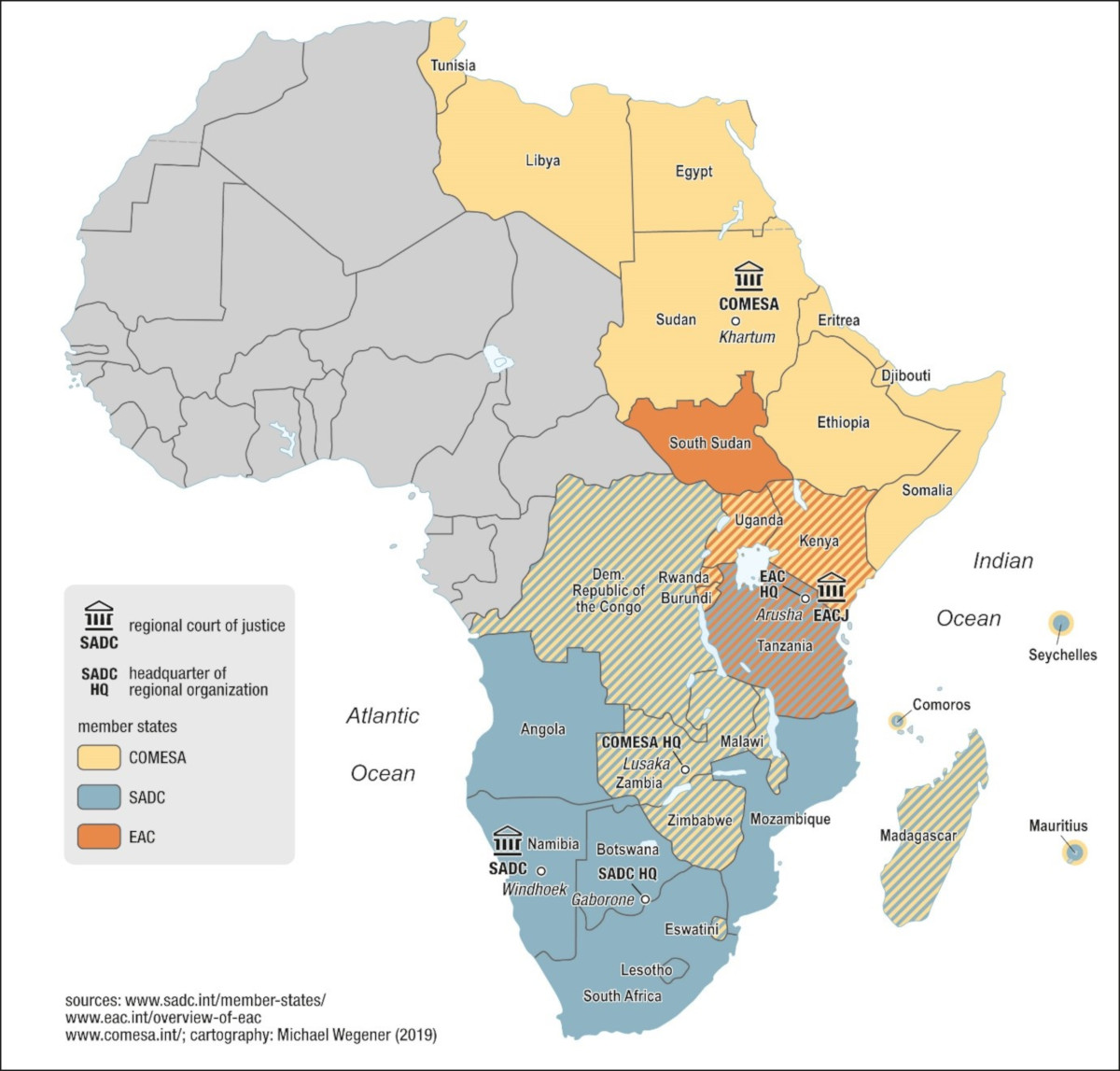Multiplicity in Decision-Making of Africa’s Interacting Markets: The Functioning of Community Law, the Role of Market Participants and the Power of Regional Judges
Multiplicity in Decision-Making of Africa’s Interacting Markets: The Functioning of Community Law, the Role of Market Participants and the Power of Regional Judges (MuDAIMa)
Project Directors
- David Stadelmann, Development Economics, University of Bayreuth
- Alexander Stroh-Steckelberg, African Politics & Development Policy, University of Bayreuth
- Volker Wiese, Private International Law and Comparative Law, Leibniz University Hannover
Multiplicity in Decision-Making of Africa’s Interacting Markets: The Functioning of Community Law, the Role of Market Participants and the Power of Regional Judges (MuDAIMa)
Project Directors
- Prof. Dr. David Stadelmann, Development Economics, University of Bayreuth
- Prof. Dr. Alexander Stroh-Steckelberg, African Politics & Development Policy, University of Bayreuth
- Prof. Dr. Volker Wiese, Private International Law and Comparative Law, Leibniz University Hannover

Many African States are members of more than one regional community whose objectives and declared aims are economic, legal and/or political integration. Tanzania, for instance, is both member of the Southern African Development Community (SADC) and of the East African Community (EAC), but not of the Common Market for Eastern and Southern Africa (COMESA), whereas other EAC and SADC members are equally COMESA members. Thus, it is commonplace that multiple, overlapping and potentially competing economic, legal and political affiliations influence the status quo of regional integration.
Due to the nature of regional integration, the MuDAIMa project aims at a truly transdisciplinary analysis of the entangled integration situation and its relational implications by combining economics, law and political science. It will ask whether and why market participants are willing to make use of the regional communities, by delegating some of their decision-making power and conflict resolution processes. It will explore if competencies are effectively transferred or if actual political and economic power tend to remain with established decision-makers. Accordingly, the analysis seeks to provide a general understanding of decision-making powers, their delegation, and the consequences of decision-making with a particular focus on the different legal frameworks that influence and are affected by economic and political interests. The interface between legal frameworks, general empirical insights about decision-making, and specific political processes to select an important group of decision-makers to whom power is delegated promises fruitful transdisciplinary perspectives on the fate and consequences of regional integration in Africa.
An innovative combination of advanced quantitative and qualitative research methods in economics, legal analysis and political science fills MuDAIMa’s analytical toolbox. Field work at the relevant community headquarters and courts as well as in selected member states provide original data. We closely collaborate with academics on the continent in various forms.
In sum, the project seeks to contribute understanding the heavily entangled economic, legal and political integration processes in Africa.
Scheduled Project Duration
July 2019 to December 2022 (possible extension to June 2023)
The map to the left (click to enlarge) illustrates the memberships to the three REC cases in the project's focus. It also provides information about the locations of headquarters and regional courts.
See also: Project page on the website of the African Politics and Development Policy chair


